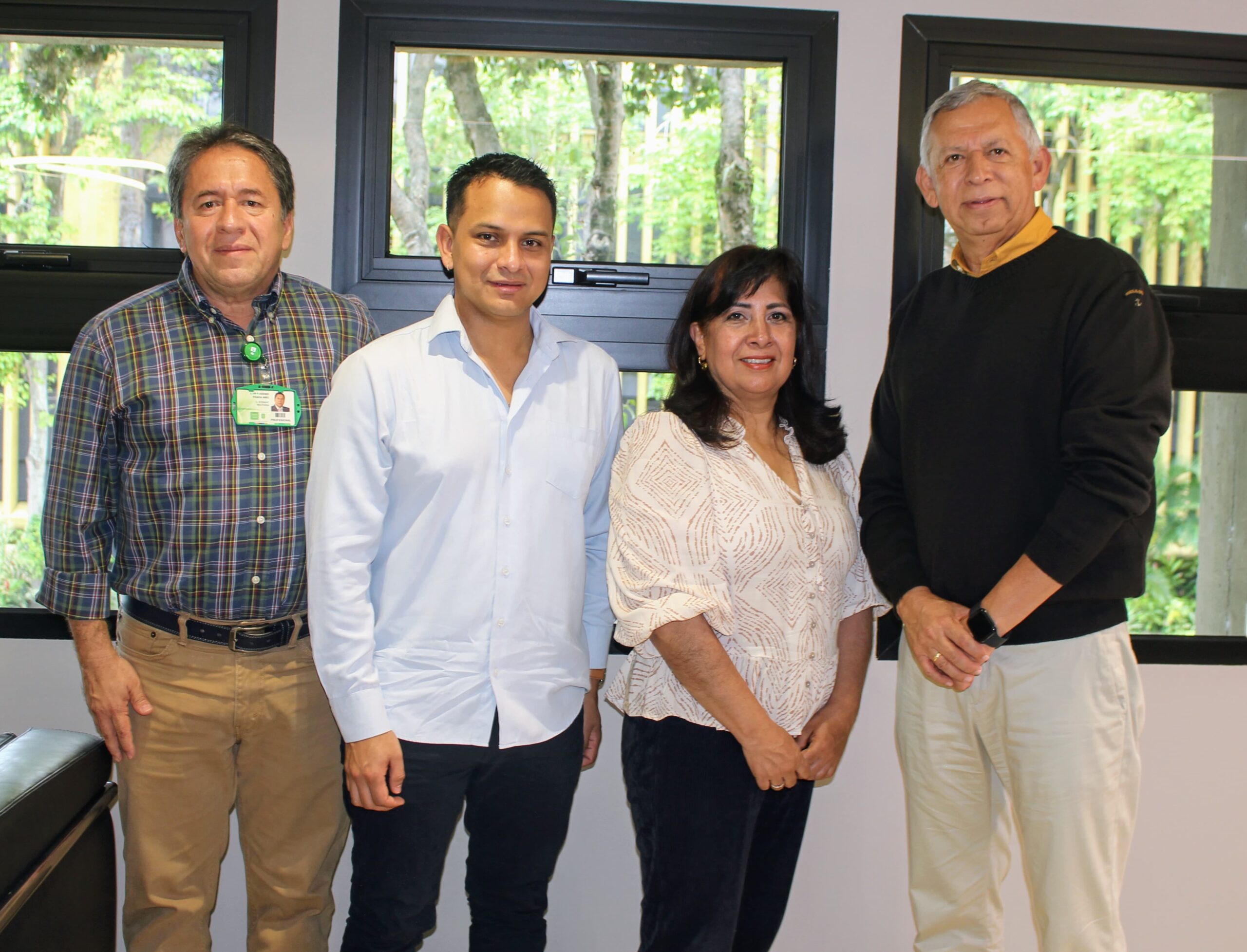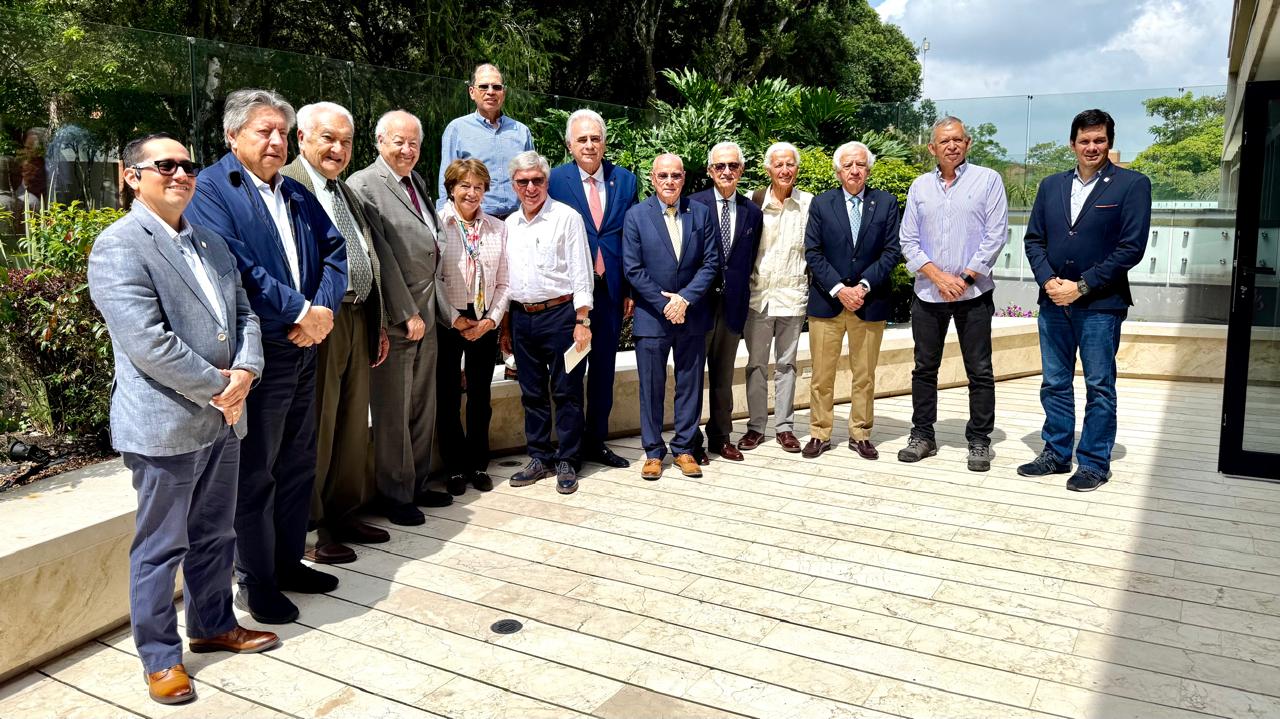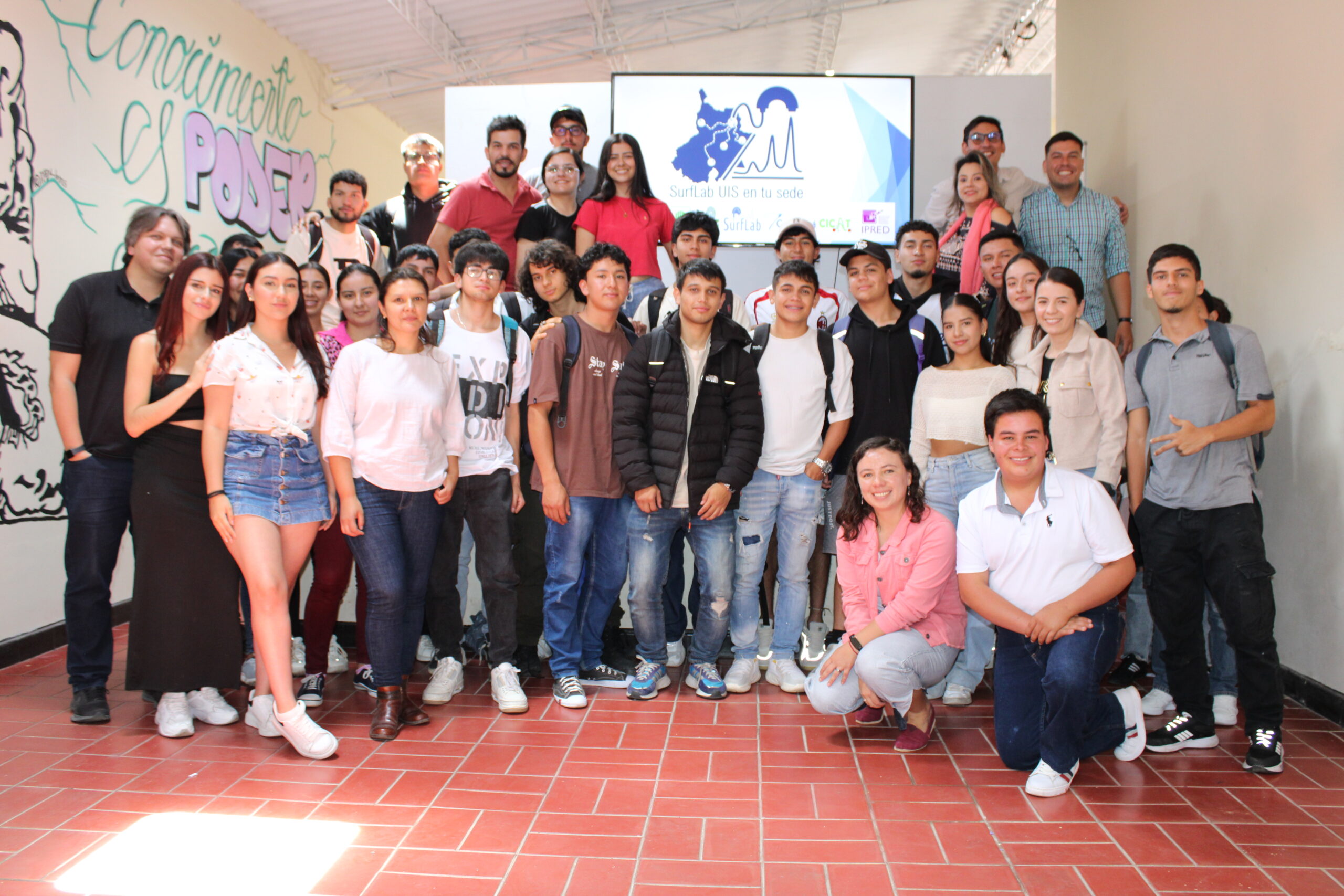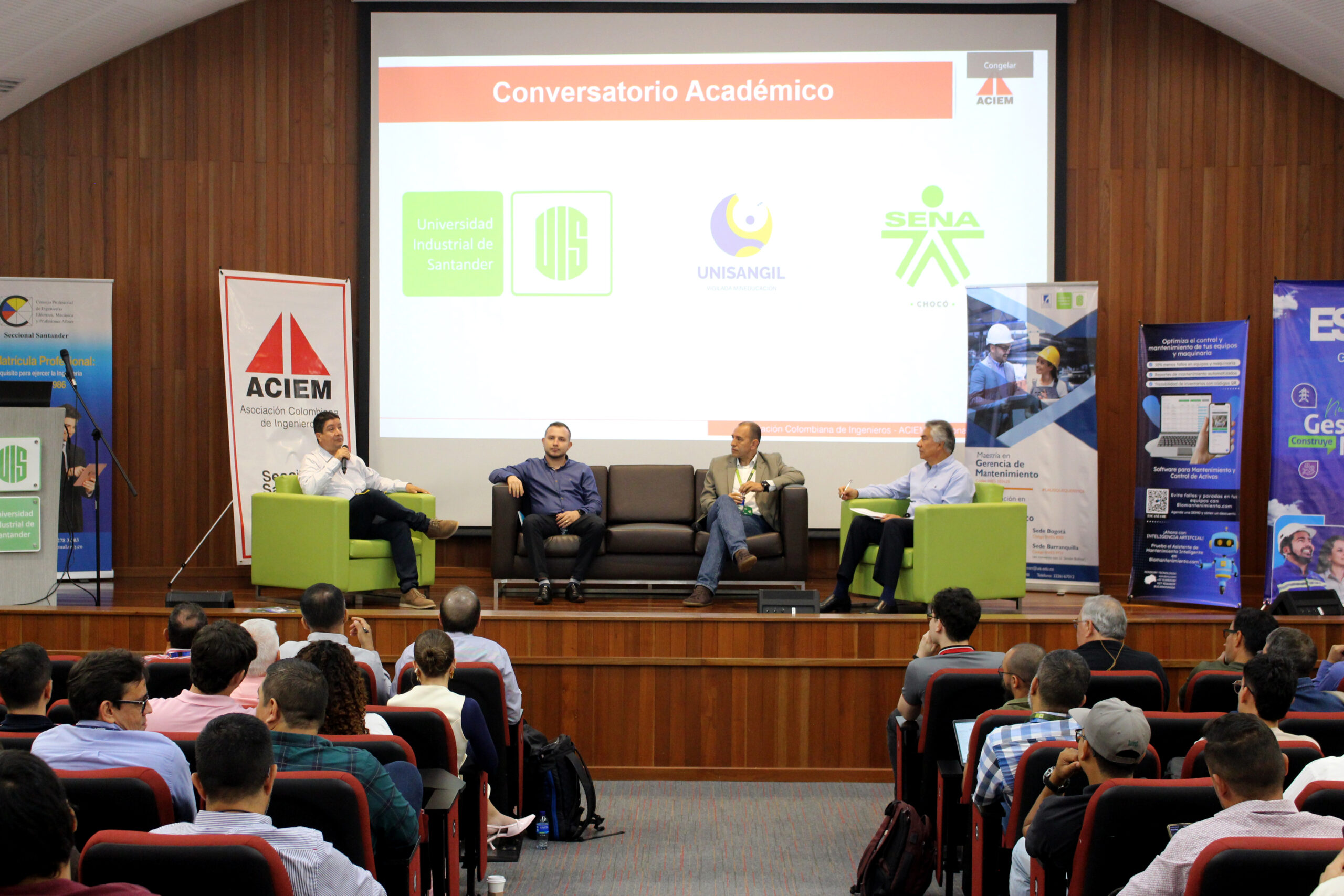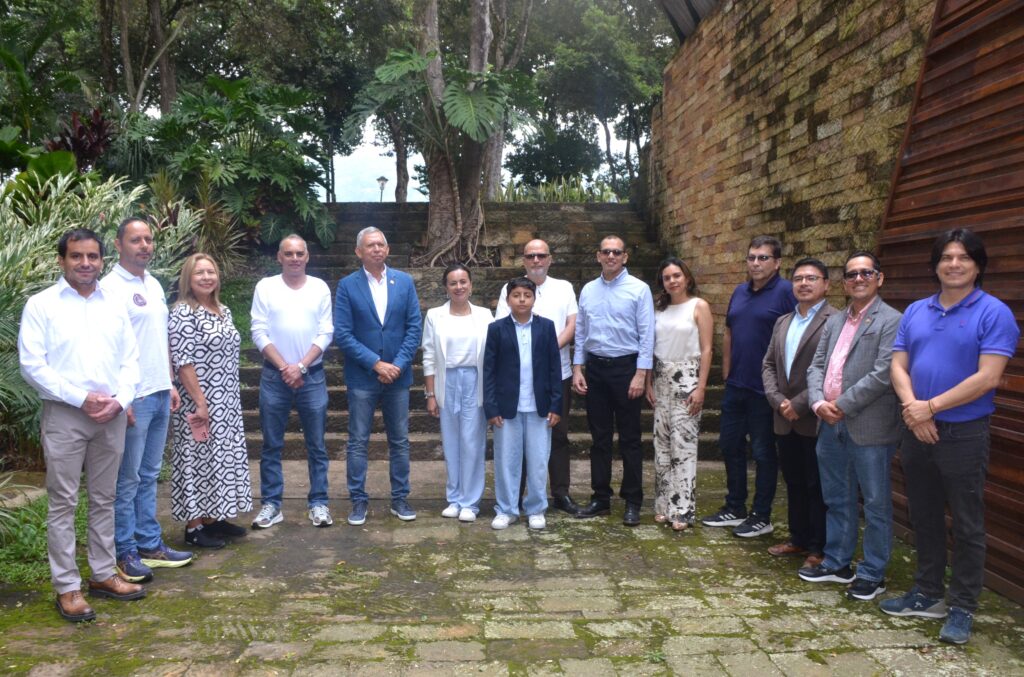
In a ceremony held in the Jorge Zalamea Hall of the Universidad Industrial de Santander (UIS), the new school directors and the dean of the Faculty of Physical and Chemical Engineering were sworn in. This event marks the beginning of another stage of renewal in the academic and administrative management of the university.
Among the new directors are Julio Roberto Pinzón Joya (School of Chemistry), Javier Alejandro Acevedo G. (School of Law and Political Science), Rafael Gonzalo Angarita C. (School of Philosophy), Isaac Guerrero Rincón (School of Economics and Administration), Gustavo Emilio Ramírez C. (School of Chemical Engineering), Luis Luis Luis (School of Chemical Engineering), Luis Luis Luis (School of Engineering) and Rafael Gonzalo Angarita C. (School of Philosophy). (School of Chemical Engineering), Luis Eduardo Bautista R. (School of Industrial Design), Luis Carlos Gómez Flórez (School of Systems and Computer Engineering), Natalia Esquivel Garzón (School of Nursing) and Jorge Andrés Niño García (Department of Mental Health). Also, Professor Sandra Judith García Vergara assumed the position of dean of the School of Physical and Chemical Engineering.
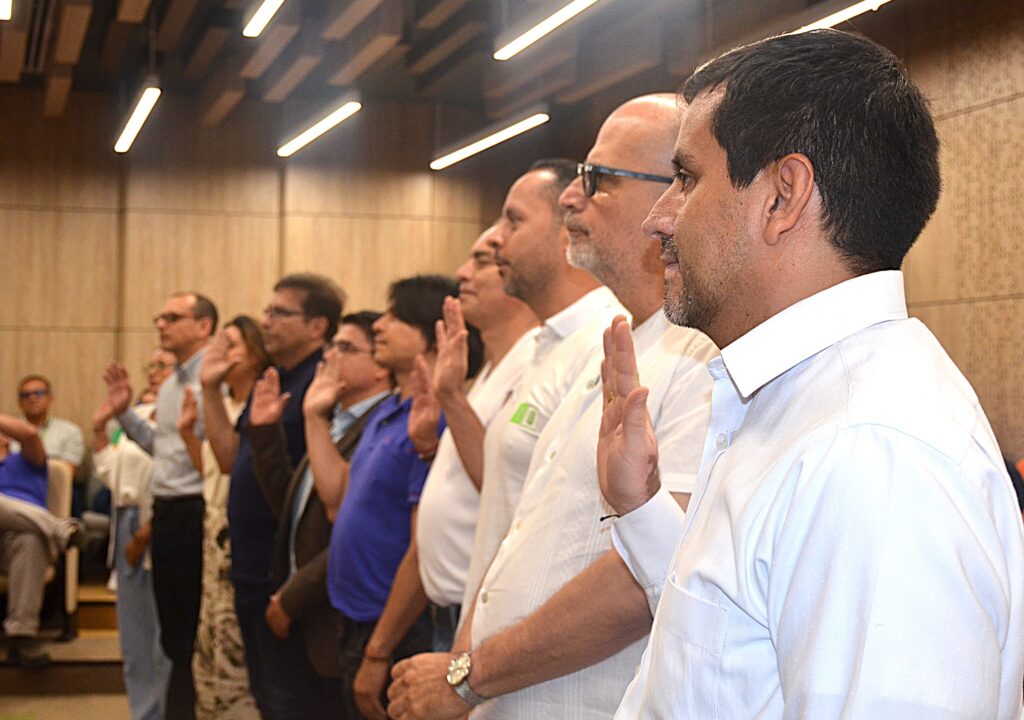
Challenges and commitments
During the ceremony, the directors highlighted the challenges they will face in their respective schools. Among the challenges that stand out are: opening of new undergraduate and graduate programs, international certifications, infrastructure, double degrees, among others.
Julio Roberto Pinzón Joya, director of the School of Chemistry, emphasized that “the next challenge is the international accreditation of our undergraduate program in chemistry before the Royal Society of Chemistry”, highlighting the importance of consolidating the academic and infrastructure transformation of the school.
Natalia Esquivel Garzón, director of the School of Nursing, emphasized the need to maintain the school’s high quality accreditation. “It is fundamental for us to maintain this accreditation. Among the projects we have is to be able to work on the double degree, so that our graduates have the possibility of obtaining a degree from both the UIS and a foreign university,” she explained.
From the School of Industrial Design, Luis Eduardo Bautista mentioned the importance of strengthening the relationship with industry and working on the creation of a PhD in Industrial Design. “We want to continue opening the doors so that our graduates can link more immediately with companies in the sector,” he said.
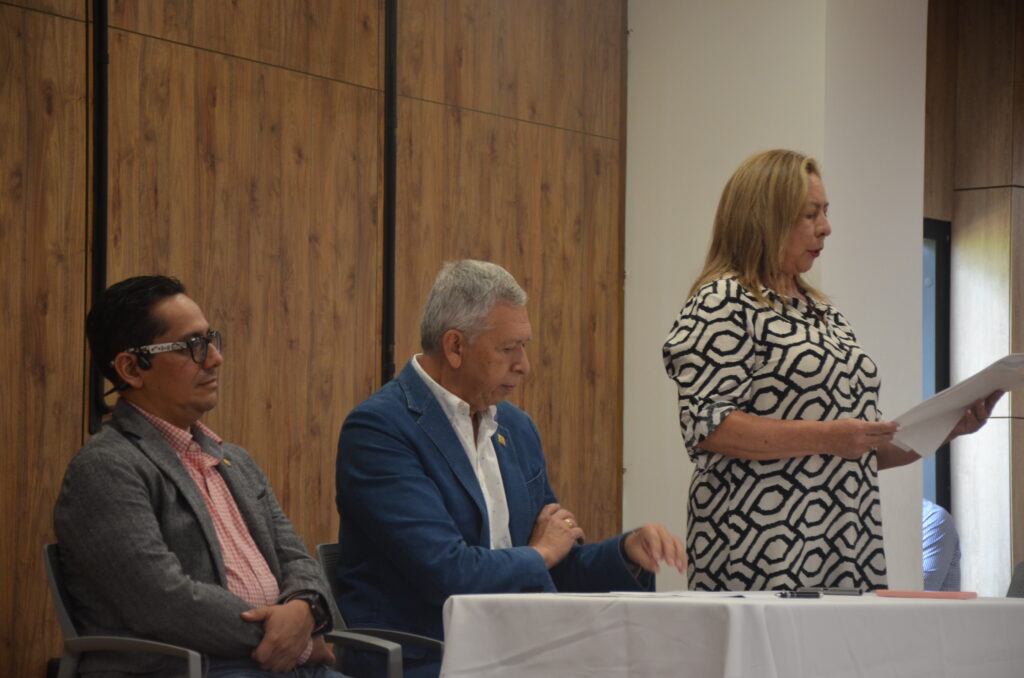
He added that “a first challenge in the transition to the new curriculum of the School of Design, an update we made, quite interesting and very useful for our new graduates. We are also in the process of accreditation of the Master’s program in Innovation and Design, where there is a set of interesting challenges to strengthen the program and obtain accreditation.
In the technological field, Luis Carlos Gómez Flórez, director of the School of Systems and Computer Engineering, highlighted the growth of the school’s programs. “It is a huge growth, both horizontally and vertically. “The idea is to consolidate the foundations for the programs that are under development in our school, two recently created: Engineering in Science and Data and Biomedical Engineering, another that will very soon begin operations which is the undergraduate degree in Engineering and Artificial Intelligence. There is another one proposed that we also hope to start, which is Software Engineering. There is a doctorate, in addition to the one we already have in computing, a doctorate articulated with health in Biomedical Engineering”.
“There are other master’s degrees, that is, it is a huge growth, both horizontally and vertically, (1:04) demands a considerable effort in the growth of the teaching staff of the school, (1:09) which will reach 36 professors, today we are 20”.
On the other hand, the new dean of the Faculty of Physicochemical Engineering, Sandra Judith García Vergara, highlighted the leadership that UIS has in the number of accredited programs in the country, “we are the public university with the highest number of accredited programs and we are equal to the Andes and that has placed us in a national reference that we have to continue promoting”.
He added about the importance of strengthening the relationship between academic research and the productive sector. “Students and professors have made an analysis and have demanded a little more relationship with the industry, then we have to look for spaces to facilitate the industry to come, to support us, to tell us what they need and how we can synchronize to talk at the same times.”
With these appointments, the UIS reaffirms its commitment to academic excellence and the strengthening of its programs, with the objective of consolidating itself as one of the most prestigious universities in the country.

